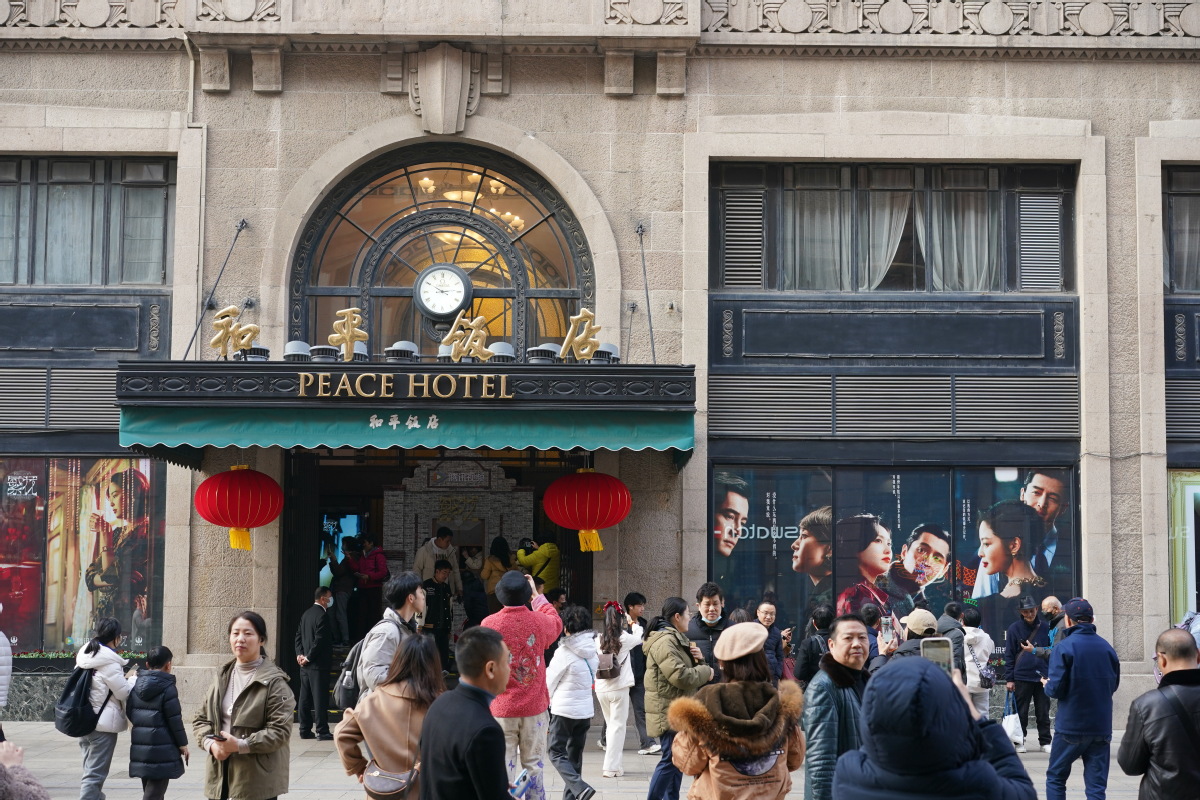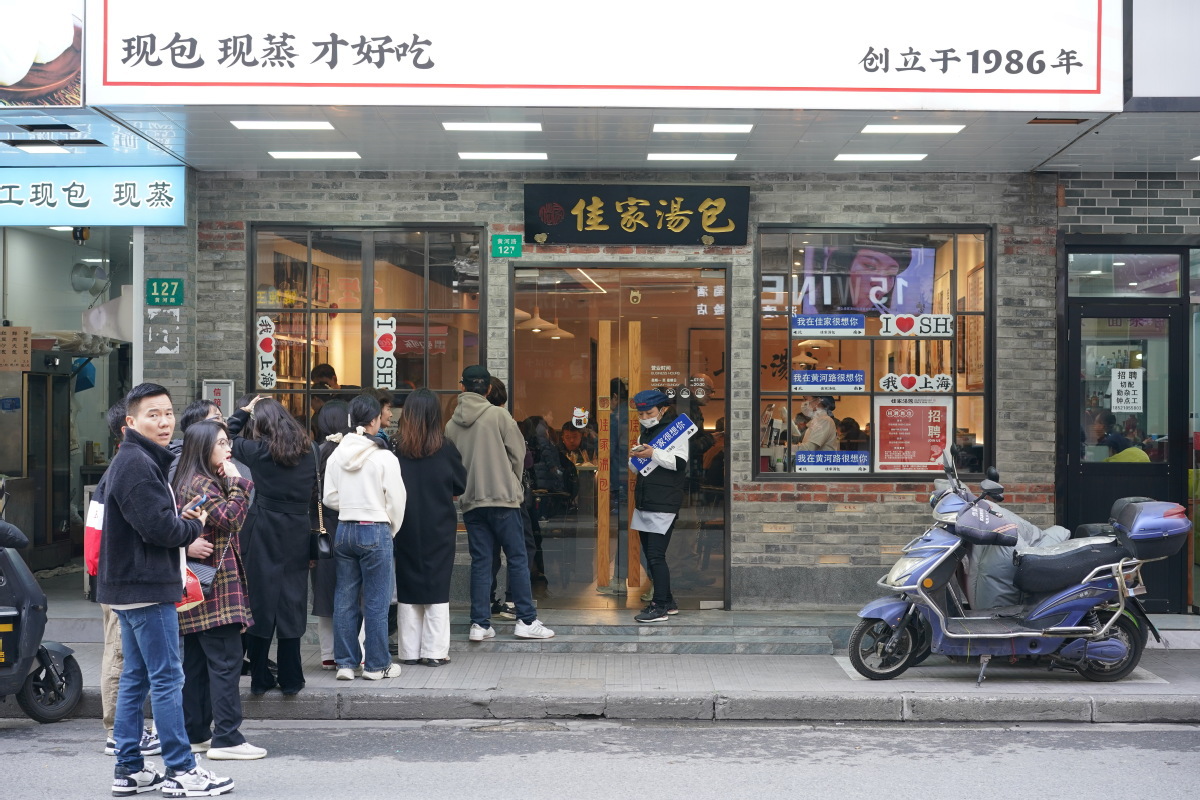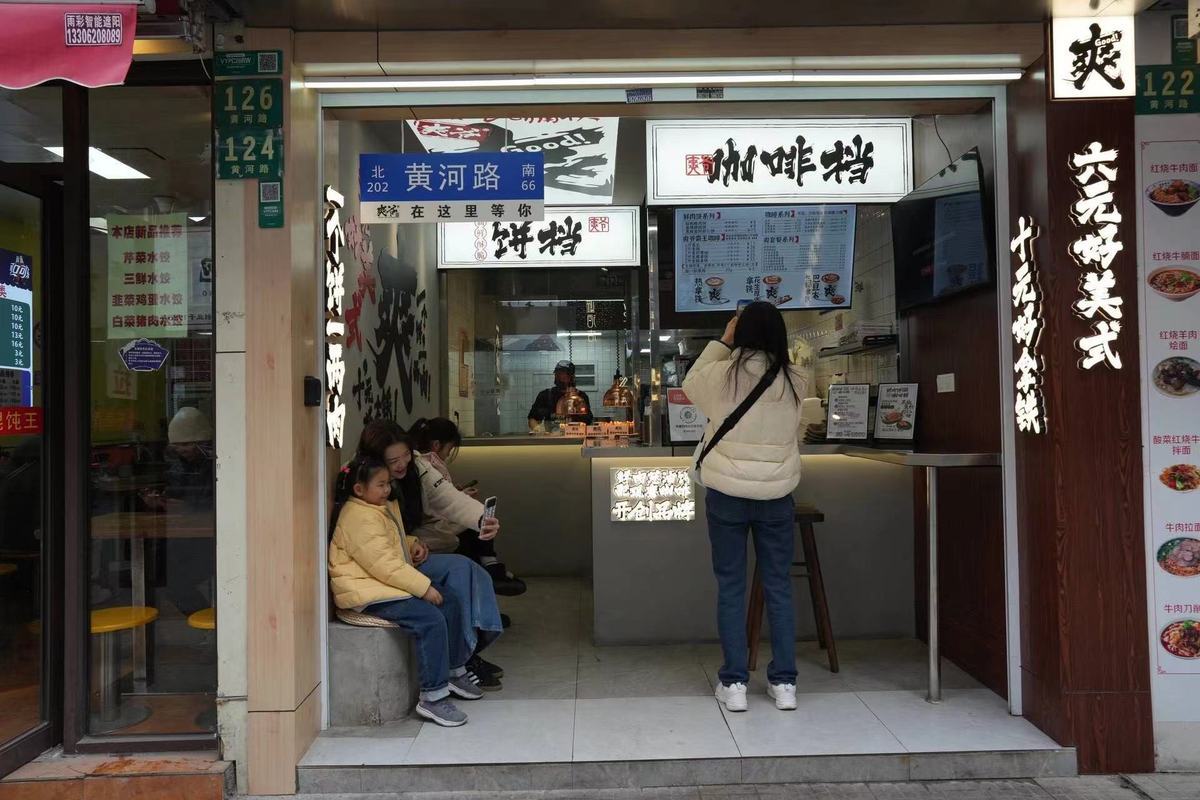
| 双语新闻 Bilingual News | 双语对照阅读 分级系列阅读 智能辅助阅读 在线英语学习 |

| 双语新闻 Bilingual News | 双语对照阅读 分级系列阅读 智能辅助阅读 在线英语学习 |
| [英文] [中文] [双语对照] [双语交替] [] |

| Formerly known as a gastronomy paradise, Shanghai's Huanghe Road used to be home to over 100 restaurants, many of which served high-end fare that only the rich and famous could afford. |
| But everything started to change in the mid-1990s when a spate of changes sapped the lustre out of this bustling street. |
| New safety regulations, for example, saw the iconic neon signs that gave the street much of its character torn from the buildings. Fried snakes, a delicacy that many intrepid gourmands sought after, were also banned. The Asian financial crisis in the late 1990s and the SARS pandemic in 2003 subsequently resulted in many restaurants closing down. |
| But the area is now experiencing a revival of sorts, with throngs of people armed with cameras flocking to it in search of nostalgia and historical clues. |
| Wang Yongfen, who has been living in a shikumen lane house on Huanghe Road for the last 35 years, said she has never seen such crowds before. |
| The reason behind this phenomenon is Blossoms Shanghai, a new television series by Hong Kong director Wong Kar-wai that was released on December 27, 2023. |
 |
| Adapted from Chinese writer Jin Yucheng's award-winning novel Fan Hua (Blossoms), the TV series takes audiences back to 1990s Shanghai when the city was experiencing unprecedented economic growth and prosperity. |
| "The TV series did a great job in portraying Shanghai in the 1990s. Although the names of the restaurants and shops in the drama were made up, the scenes got me reminiscing about the many old-school restaurants and bars here," said the 60-year-old. |
| "Restaurants here were the pioneers in introducing Hong Kong cuisine to the city. Many top chefs from Hong Kong used to work in the restaurants here," recalled Wang. |
| "Hong Kong dishes quickly became popular as pop songs and movies from Hong Kong were highly sought after here in the 1990s. It was common to see photos of restaurant owners posing with famous movie stars and singers from Hong Kong." |
| A security guard surnamed Zhang who works at an office building along the road told China Daily that the area has been overflowing with visitors since the launch of the new show. |
 |
| "Just look at Park Hotel. People have been queuing up as early as 6 am to buy its famous palmiers even though the pastry shop only opens at 8 am. There are also many more young people visiting these days," said Zhang. |
| One of the biggest beneficiaries of the latest craze is the restaurant called Tai Sheng Yuan, which was the inspiration for the fictitious Zhi Zhen Yuan restaurant that is depicted in the drama. According to its staff, online sales had burgeoned a whopping 170 percent compared with a week ago. Group purchase orders had also soared by 240 percent. |
| Visitor numbers to the Fairmont Peace Hotel on the Bund, another landmark depicted in the TV series, has also been rising, as evidenced by the deluge of photos posted by Chinese social media users. |
| To take advantage of the fanfare surrounding the road, the hotel recently unveiled a new set menu comprising several dishes featured in the TV series. Despite costing 1,460 yuan ($204), the two-person set meals were quickly snapped up within days. |
 |
| Online food delivery services have also reported that takeaway orders for food featured in the TV drama have been soaring. For example, online takeaway orders of rice soup, a typical Shanghai homemade dish that involves soaking leftover rice in a seafood broth, spiked 1.5 times on Meituan. |
| Other Shanghai classics like pork chops and rice cakes, have also been massively popular, with food delivery orders for them soaring 300 percent on Meituan. |
| But the show has stirred more than just appetites of the public. For Huang Jiani, the show reminded her of the days when people could still set off firecrackers in downtown during the Spring Festival holiday period. |
| "Business people believed that larger and louder firecrackers would bring greater fortunes in the new year. On the eve of the Spring Festival, restaurant managers would set off boxes of firecrackers larger than TV sets in the middle of the street. The deafening sounds of the firecrackers going off could be heard till sunrise," Huang recalled. |
OK阅读网 版权所有(C)2017 | 联系我们